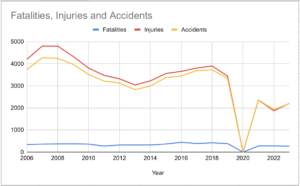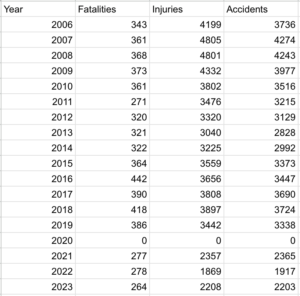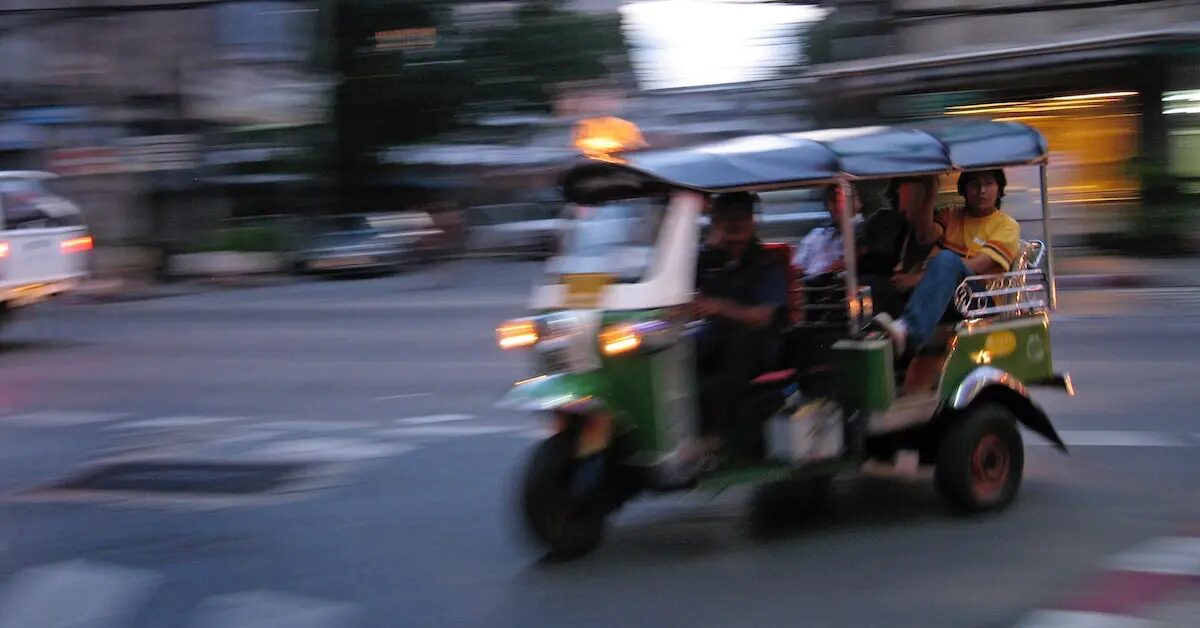Songkran is the Thai new year celebration which occurs in April. It is a fun time (for some) where people splash each other with water and, especially in the villages outside of Bangkok and other major tourists areas, the Thais have a multi-day festival ringing in the new year.
Unfortunately, Songkran is also associated with a period of road carnage that has become somewhat of a macabre obsession with some. Songkran is a festive time and people engage in copious amounts of drinking which combined with operating a motor vehicle can have devastating consequences.
Even on a normal day in Thailand, the roads are far less safe than what some of us foreigners are used to back home. According to the BBC, Thailand’s roads are ranked the second most lethal in the world, only behind Libya.
Thailand has 36.2 road fatalities per 100,000 people. Compared with the US at 10.6 per 100,000 or the UK at 2.9 per 100,000, these numbers are shocking and should be a stark reminder to tourists and expats that they should be super vigilant about their safety on the roads in Thailand.
In 2013 (latest numbers provided by Wikipedia) Thailand saw 24,237 road fatalities.
Though, to many people these numbers simply reflect the lax attitude towards road safety that is on constant display in Thailand. Whether it be children as young as 10 years old riding motorbikes (sometimes with 2, 3, 4, or even 5 passengers), motorcycle taxis zooming down sidewalks in Bangkok or zipping in and out of traffic, or chartered bus drivers that drive at unsafe speeds on twisty roads, Thais don’t seem to exhibit much concern for safety norms.
Combining lax road safety attitudes with equally lax attitudes regarding obeying traffic laws and it can be a deadly combination.
Thailand is a country where traffic violations are often dealt with by slipping the police officer a small bribe thus making respect for traffic laws difficult to enforce. No matter what directives come down from the central government, enforcement is difficult when the police simply view the crackdowns and new laws as a way to collect more money.
Songkran is a particularly deadly time when you combine all of these factors together.
Every year the local press starts their road incident tallies which are reported by the government. Each day of Songkran (which is tallied as a 7-day period though the most intense celebrations are only over 3 days) is marked by media reports of the number of accidents, injuries, and fatalities with a running total for Songkran.
As you can see by the chart and numbers below, while there were some declines in the numbers between 2008 and 2012, they’ve been inching up again.


The bottom line is that Songkran is one of the most deadly periods to be on the road in Thailand and expats and tourists would be wise to exercise extreme caution.
Generally, if you can avoid road travel, do so. Take a taxi (or the BTS/MRT – if you’re in Bangkok) instead of riding your motorbike. Avoid taking busses or vans on long trips up country or to tourist spots (take a train or fly if you can). Practice defensive driving if you are driving.
Unfortunately there is no magic way to stay safe during Songkran or any other time of the year and given the ineffectiveness of previous crackdowns, government pleas, and simple lack of will on the part of Thai society.
